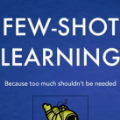Practical applications of event extraction systems have long been hindered by their need for heavy human annotation. In order to scale up to new domains and event types, models must learn to cope with limited supervision, as in few-shot learning settings. To this end, the major challenge is to let the model master the semantics of event types, without requiring abundant event mention annotations. In our study, we employ cloze prompts to elicit event-related knowledge from pretrained language models and further use event definitions and keywords to pinpoint the trigger word. By formulating the event detection task as an identify-then-localize procedure, we minimize the number of type-specific parameters, enabling our model to quickly adapt to event detection tasks for new types. Experiments on three event detection benchmark datasets (ACE, FewEvent, MAVEN) show that our proposed method performs favorably under fully supervised settings and surpasses existing few-shot methods by 21% F1 on the FewEvent dataset and 20% on the MAVEN dataset when only 5 examples are provided for each event type.
翻译:事件提取系统的实际应用长期以来一直由于需要大量的人类说明而受阻。 为了推广到新的域和事件类型,模型必须学会如何应对有限的监督,如在微小的学习环境中那样。 为此,主要的挑战是如何让模型掌握事件类型的语义,而不需要大量的事件说明。 在我们的研究中,我们使用凝聚提示从预先训练的语言模型中获取与事件有关的知识,并进一步使用事件定义和关键词来确定触发词。通过将事件探测任务作为识别和确定程序,我们最大限度地减少特定类型参数的数量,使我们的模型能够迅速适应新类型的事件探测任务。关于三个事件探测基准数据集(ACE、WorthEvent、MAVEN)的实验表明,我们拟议的方法在完全受监督的环境下运行良好,在微小Event数据集上比现有的少发方法高出21%的F1,在提供每类事件类型5个实例时比MAVEN数据集高出20%。




